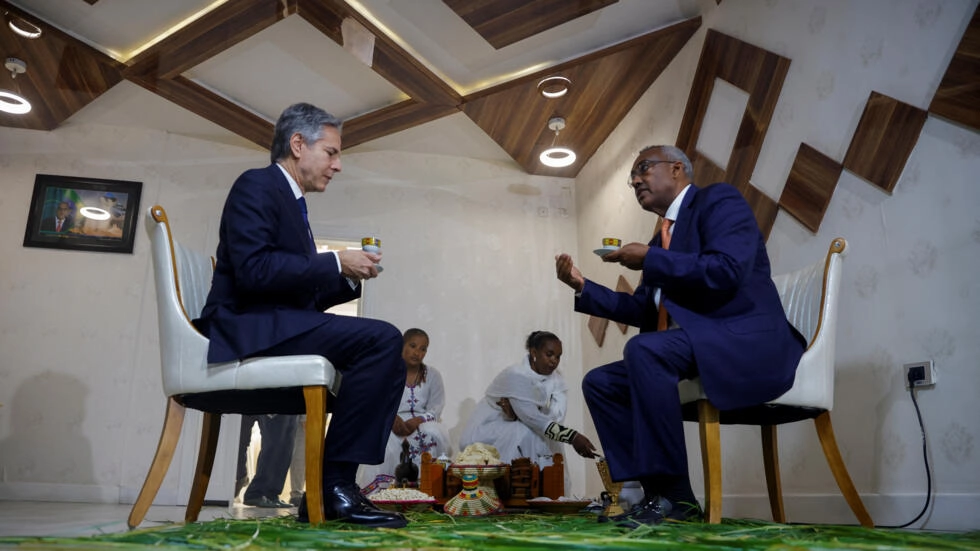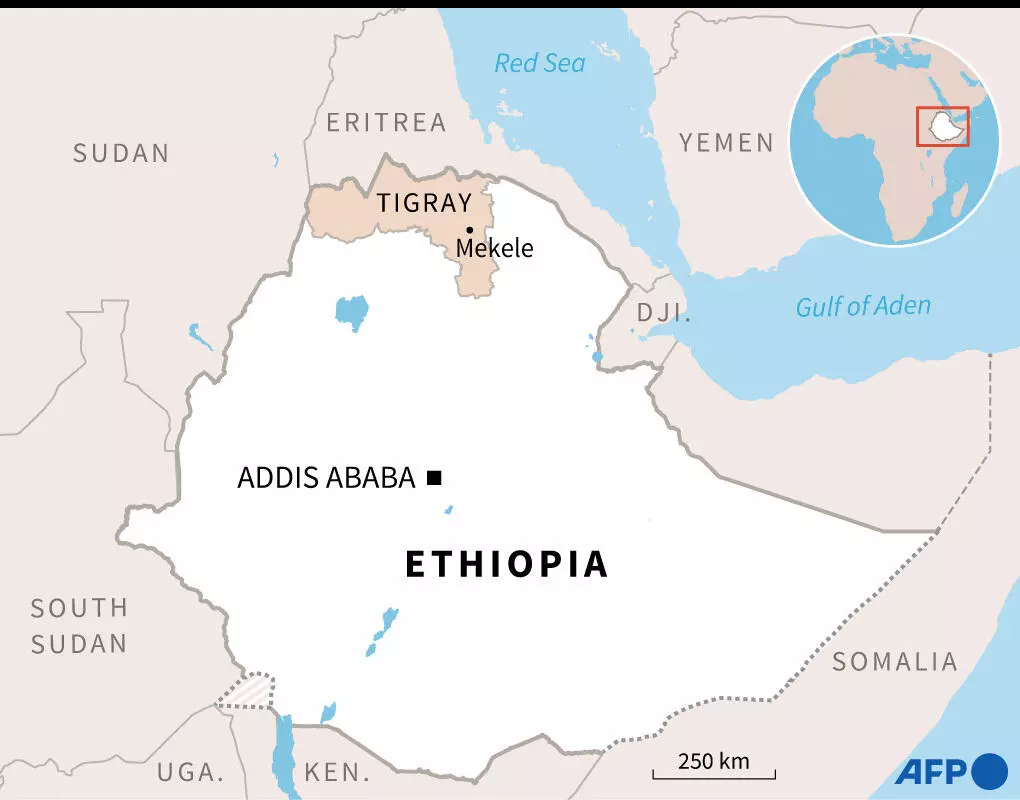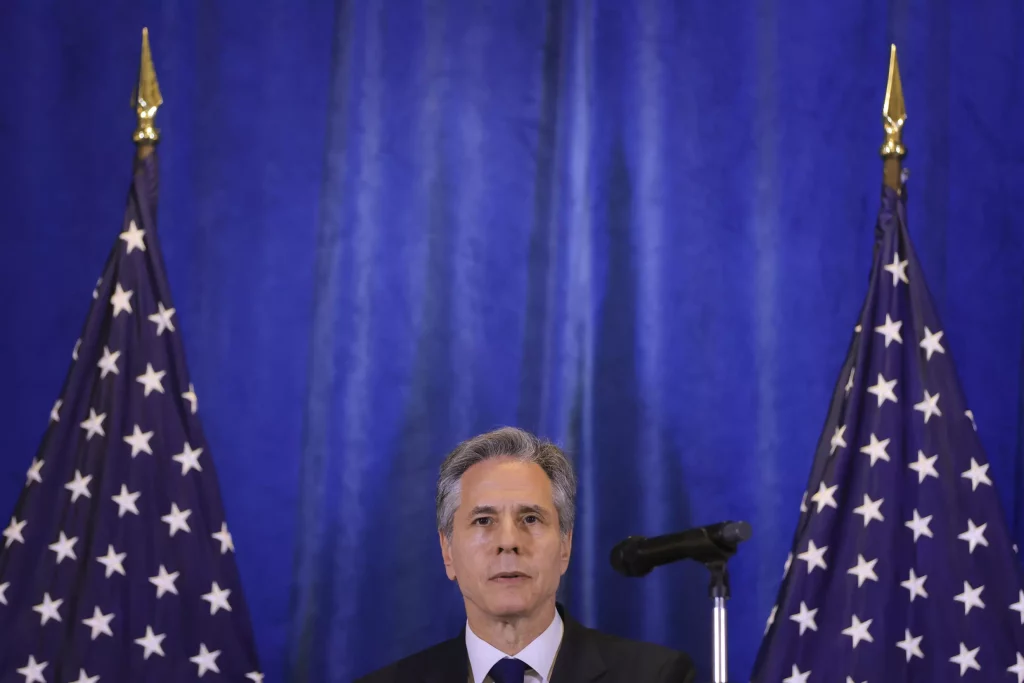
Addis Ababa (AFP) – US Secretary of State Antony Blinken on Wednesday urged Ethiopia to ensure accountability over the brutal Tigray conflict but voiced guarded optimism at preserving peace, on a trip that marked an easing of a wartime rift between the longtime allies.
On the latest trip by a senior US official to Africa as China and Russia makes inroads on the continent, Blinken offered $331 million in new humanitarian aid but stopped short of backing Ethiopia’s readmission to a major trade pact.
The top US diplomat said greater economic relations with Ethiopia depended on its commitment to both “reconciliation and accountability” over the war, which the United States estimates has cost about 500,000 lives.
“Getting to justice, bringing people together, that’s the way to make sure that peace lasts and that people can move on with their lives and the country can really move forward,” Blinken told reporters after a day of talks.
He met for an unusually long two and a half hours with Prime Minister Abiy Ahmed, who was angered during the war after Blinken alleged that crimes against humanity had been committed.
Blinken also met representatives of the Tigray People’s Liberation Front (TPLF) and said that both sides voiced commitments to implementing the November 2 peace accord brokered in South Africa by the African Union, with US support.
He also held talks with human rights groups and said they had reported “a very significant drop in human rights violations and abuses in Tigray” since the agreement.

“That doesn’t mean that they have been eliminated and, indeed, we strongly urge all parties to the conflict to do everything possible to ensure that they cease entirely,” Blinken said.
Abiy, who did not let journalists into his meeting with Blinken, wrote on Twitter that he agreed with him to “strengthen the longstanding bilateral relations (between) our countries with a commitment to partnership”.
‘Life-saving support’
Blinken announced new humanitarian assistance worth more than $331 million to Ethiopia, which is also grappling with a record drought in its southern and southeastern regions.
“This funding will provide life-saving support to those displaced and affected by conflict, drought, and food insecurity in Ethiopia,” Blinken said as he toured a UN logistics hub in Addis Ababa for food relief.

The new aid, which brings total US humanitarian assistance to Ethiopia to more than $780 million in the US fiscal year 2023, is intended “for everyone — not one group or region”, Blinken told reporters.
“We want to make sure whoever is in need gets that assistance.”
Blinken walked past packed split peas and vegetable oil donated by the United States and, pointedly, wheat gifted by Ukraine, the invaded nation’s flag emblazoned on the sacks, as Washington presses Russia to renew a grain export deal.
– Calls for accountability –
Abiy, a Nobel Peace Prize winner, was once seen as at the vanguard of a new generation of forward-looking African leaders, but his reputation took a beating in Washington over the Tigray war.
The violence erupted when the TPLF, which once dominated Ethiopian politics, attacked military installations, prompting a major offensive by Abiy’s government with backing from neighbouring Eritrea.
The TPLF came close to marching on the capital but, beaten back by pro-Abiy forces, agreed to disarm under the November accord.
Abiy has pledged to restore basic services in war-wracked Tigray, though it is impossible to assess the situation on the ground due to restrictions on media access.
Human Rights Watch and Amnesty International have both urged Blinken to press for full implementation of the peace deal and accountability for past abuses.
“Failure to do so will send a signal to perpetrators everywhere that the US will not stand up for justice,” Amnesty’s Africa advocacy director Kate Hixon said.
The Tigray war has been one of the deadliest in the 21st century, with the US-estimated toll higher than that from Russia’s invasion of Ukraine, which has drawn far more global attention.
Moscow has gone on a diplomatic offensive in Africa, including in Ethiopia, hoping the continent will stay neutral rather than join Western sanctions against it.
Russia’s efforts follow years of inroads in Africa by China, which has also offered the continent’s leaders relationships unencumbered by Western pressure on human rights.




